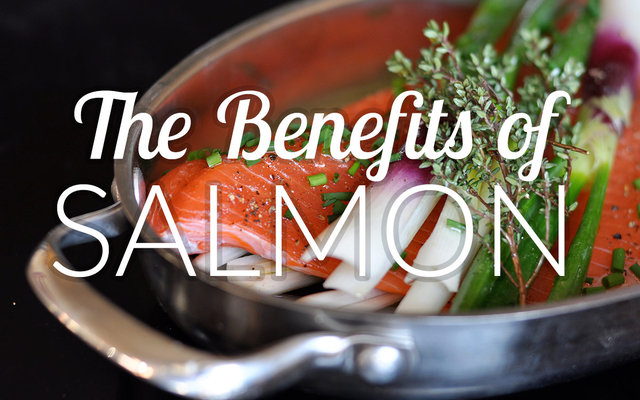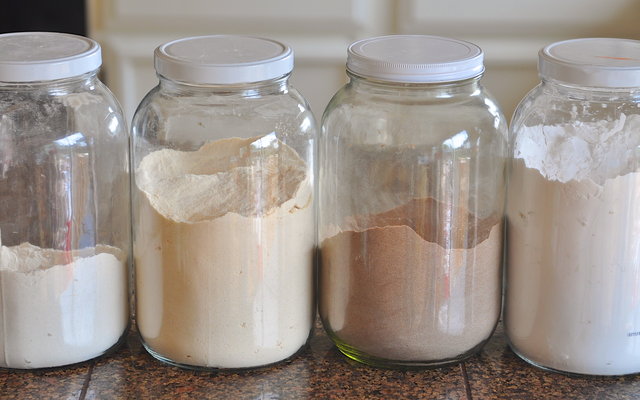by Tom Malterre | 12 comments
Replenish What Your Body is Lacking:
Low magnesium can lead to chronic fatigue, muscle imbalance, mood instability, ADD/ADHD, and more.
Once your upper intestinal tract has been damaged by food-related reactions, it's difficult for your body to absorb the nutrients it needs to thrive. Celiac disease or gluten-sensitivity can often lead to malabsorbtion issues that often cause insufficiencies in magnesium, vitamin D, essential fatty acids, folates, zinc, and often tryptophan. Eating foods rich in these nutrients and taking these vitamins and minerals as supplements can help nourish your body back to wholeness as your stomach and intestinal tract heal.
It is estimated that between 60-80% of our population is low in magnesium, an element needed in over 300 different enzyme reactions. If your body needs energy to be delivered somewhere, magnesium is what your body will use to deliver it.
Magnesium:
If you find your energy lagging or suffer from muscle aches or cramps, low magnesium levels would be one contributing factor to consider. Magnesium levels are commonly shown to be low among those suffering from gluten-related ailments; in fact, it is estimated that between 60-80% of our entire population has insufficient magnesium. Magnesium binds to ATP, the source that we use in our body for energy. Over 300 different enzymes in our bodies need magnesium to prevent chronic fatigue, muscle imbalances, mood problems, and ADD/ADHD, so if you're considering taking supplements, I highly recommend magnesium. If you are suffering from constipation, many people will opt for using levels of magnesium citrate necessary to meet both their dietary magnesium needs, and to assist in "loosening" their stools.
* The average client can tolerate up to 400mg of magnesium a day without causing looser stools. Many people will supplement magnesium to a point of bowel tolerance to know what their threshold is.
Vitamin D:
Vitamin D literally changes how your genes operate, enabling your body to respond appropriately to foreign invaders, regulating inflammation and protecting against over-reactive immune responses that may lead to autoimmunity, in which the body is unable to recognize "friend" from "foe" and begins attacking itself counter-productively. It also encourages proper metabolism and helps close the junction of intestinal cells, helping heal "leaky gut." Though we can synthesize Vitamin D by simple exposure to sunlight, Vitamin D can also be taken in supplement form.
*While bone levels may be preserved at 32ng/mL, many physicians are finding that 25-hydroxy vitamin D levels between 45ng/mL-70ng/mL may provide more protection against inflammatory, and autoimmune diseases. There is, however, one important exception. Sarcoidosis. If you have sarcoidosis, it is important that you consult your primary care physician before taking vitamin D supplements.
Essential Fatty Acids:
The "essential" part of "essential fatty acids" (EFAs) means that while your body cannot produce them, you need them to survive. Essential fatty acids establish structure to your cellular membranes in order to function well and keeps your body's inflammation calm and productive. Common food sources for EFAs include fish (wild Alaskan salmon is a wonderful example), shellfish, flax seeds, and chia seeds, among others—but they can also be taken in supplement form as krill oil, fish oil, as well as omega-3 and omega-6 fatty acid oil mixtures.
*Krill oil may have a slight advantage with getting essential fatty acids to the brain. The EFA's in krill are bound to phospholipids allowing them to pass the blood brain barrier more readily.
Folic acid (or more properly bio-active folate):
Folate—related to the term "foliage"—refers to leafy greens and beans, which is how we primarily receive folates in our diet on a day-to-day basis. Folates are responsible for remodeling your DNA, RNA, phospholipids, and proteins by moving around one carbon in their chemical structure. As a result, proper folate levels promote proper neuro-transmitter and mood function (helping prevent anxiety and depression), and they are more commonly known for contributing to the fetal development of the neural-tubes. The forms of folates to look for in supplements would be folinic acid, and 5-methyltetrahydrofolate (5MTHF). They are the active biological forms of folates. If you are using "folic acid", this is a form that may not be properly metabolized in your body.
*Some functional medicine doctors are using 5MTHF to assist in the efficacy of SSRI medications with great results. Ask your doctor about bioactive folates for anxiety and depression.
Zinc:
Zinc is often associated with providing immune response to cold and flu viruses, as well as for a multitude of reactions in the brain that help stabilize mood. Zinc is also critical for the secretion of gastric-acid for proper digestion, as well as for wound repair, especially in the intestinal disorders such as irritable bowel.
Tryptophan:
Though tryptophan is the least common amino acid in the human body, it is extremely important for healing damaged tissue in your stomach and intestinal tract. Tryptophan serves as a biochemical precursor to the neuro-transmitters serotonin and melotonin, which help regulate proper sleep, mood, appetite, and digestion.
*If someone has a poor antioxidant status (smoking, drinking, bad diet, etc...), or deficiency of vitamin B6, and/or B3 (niacin), it may be more beneficial to supplement a form of tryptophan known as 5HTP.
Glutamine:
One of the biggest issues facing those with food-allergies is that as the stomach and intestinal lining become damaged, the body becomes nutrient-deficient. As a result, oftentimes those sensitive to gluten will not have ideal lean muscle mass density, which is necessary for the body's clean burning of fuel. Glutamine is a prime signaling agent within the muscle cells on whether or not to break them down or build them up—and it is the preferred fuel used by your intestinal cells, which are replicated every day or two as they are damaged and slough themselves off. Need to repair an intestine or preserve lean muscle mass? Think glutamine.
References
-
Digestive and Nutritional Considerations in Celiac Disease: Could Supplementation Help?

Stay up to date with the current science and recipes that can help make your family healthy.



Comments
Amino Acid Complex
by Preeti on Wed, 03/04/2015 - 4:51pm
I was wondering this same
by Deanna on Sat, 03/07/2015 - 4:52pm
Amino Complex
by Alissa Segersten on Sat, 03/07/2015 - 5:47pm
Amino Acid Complex from Thorne Research
by Tom Malterre on Sun, 03/08/2015 - 1:06pm
Amino Acid Complex from Thorne Research
by Tom Malterre on Sun, 03/08/2015 - 1:08pm
Amino Complex Here on our Site
by Alissa Segersten on Sat, 03/28/2015 - 6:48pm
Thank You
by Preeti on Sun, 03/08/2015 - 2:32pm
Thank you very much!
by Deanna on Mon, 03/09/2015 - 6:42am
Dr. Russell Blaylock stated l-glutamine is an excitotoxin...
by Lisa P on Sun, 10/25/2015 - 1:27pm
Glutamine
by Lisa CPT on Thu, 01/12/2017 - 5:10am
Folic acid
by Brianne on Thu, 03/02/2017 - 5:06am
Krill oil and elimination diet
by Todd Young on Tue, 01/09/2018 - 9:30pm
Add new comment